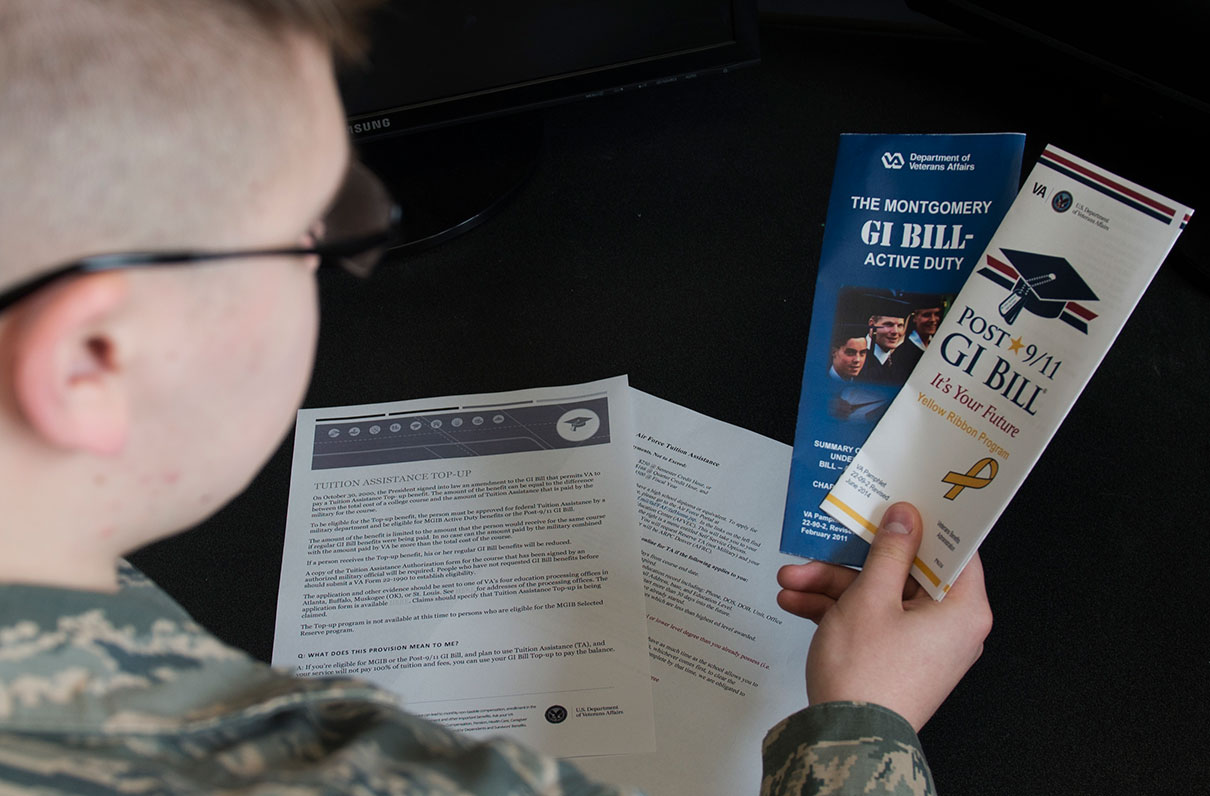Editor’s note: This article by Patricia Kime originally appeared on Military.com, a leading source of news for the military and veteran community.
A federal court has upheld a decision that could require the Department of Veterans Affairs to pay veterans an additional year of education benefits under both the Montgomery GI Bill and the Post-9/11 GI Bill.
The decision, by the U.S. Court of Appeals for the Federal Circuit last week, could result in more money for college or graduate school for an estimated 1.7 million veterans who have been told they can use one GI Bill program or the other but not both.
The case centered on Jim Rudisill, who paid into the Montgomery GI Bill while he was enlisted in the Army from 2000 to 2002 and served in the Army National Guard from 2004 to 2005, until he was wounded in Iraq. He completed college and then served as an Army officer from 2007 to 2011 -- a time frame that made him eligible for the Post-9/11 GI Bill.
Four years later, Rudisill decided to return to the Army as a chaplain and applied to use his Post-9/11 GI Bill benefits to help pay the cost of Yale Divinity School.
He argued that since he served in two different periods, he was entitled to the maximum education benefits allowed from the VA by law, capped at 48 months. He had used 25 of his 36 months of Montgomery GI Bill benefits to earn his undergraduate degree and none under the Post-9/11 GI Bill. He argued that he’d earned 23 months of benefits under the more-generous Post-9/11 GI Bill.
[RELATED: VA Changes Website to Streamline Benefits Access]
The VA disagreed, and the case wound up at the U.S. Court of Appeals for Veterans Claims, which ruled in favor of Rudisill in 2019. Judges on that court said the Montgomery GI Bill and the Post-9/11 GI Bill programs do not require a veteran who has more than one separately qualifying period of service, i.e. split time, to relinquish or exhaust their Montgomery GI Bill program before receiving benefits under the Post-9/11 GI Bill program.
In their ruling July 8, two of the three judges on the federal circuit court agreed, saying Rudisill's third separate period of service entitled him to full benefits under the Post-9/11 GI Bill.
The exact number of veterans who may qualify to request additional education benefits as the result of the ruling is unknown. Rudisill's lawsuit was not a class action and can serve only as a precedent for other veterans to cite in their own fight for benefits.
Also, the veterans' court, in its decision, said its ruling only applied to those with dual entitlement based on multiple periods of service and not "for individuals with dual entitlement based on a single period of service."
[RELATED: VA Moves to Expedite Benefits for Post-9/11 Veterans’ Asthma, Respiratory Problems]
Rudisill's attorney, Tim McHugh, told Military.com in 2019 that the decision "has the potential to restore billions of dollars ... to military service members of the Post-9/11 era."
McHugh, a lawyer with Hunton Andrews Kurth LLP, said that most who qualified for the Montgomery GI Bill were made to sign a form designed in December 2008 that required them to forgo their Montgomery GI Bill benefits to receive the significantly more generous Post-9/11 benefits. But the form does not accurately reflect the actual requirements, he said.
The VA has 60 days to appeal the federal circuit court's ruling. VA spokesman Randy Noller said Tuesday the department is assessing the decision but "remains committed to providing veterans the benefits they have earned and deserve."
Rudisill gave up his admission to Yale and is now ineligible to return to the Army due to age. He is using his benefit to attend another seminary program as he continues working for the Federal Bureau of Investigation, his lawyers said.
MOAA in Action: Major Legislative Accomplishments
For more than 90 years, MOAA’s work has led to real results. Review some of MOAA’s legislative highlights.
